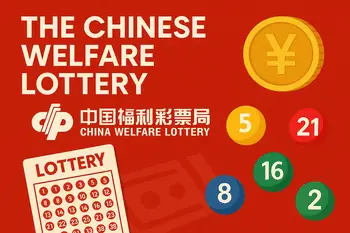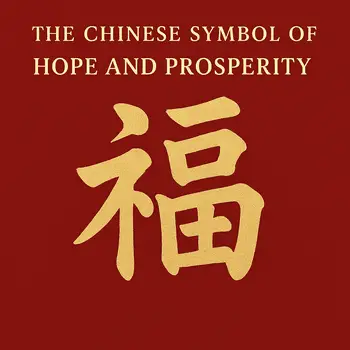
Chinese New Year, also known as the Spring Festival (春节, Chūnjié), is one of the most significant holidays in Chinese culture.
A key tradition during this festive season is gift-giving, which symbolizes goodwill, respect, and prosperity for the coming year.
For those unfamiliar with the cultural nuances, navigating this custom can be challenging.
This guide will provide practical advice, examples, and tips to help you approach Chinese New Year gift-giving with confidence and respect.
1. The Cultural Importance of Gift-Giving
Gift-giving during Chinese New Year is more than just an exchange of items; it is a meaningful gesture that reflects respect, gratitude, and the wish for good fortune.
The act fosters harmony and strengthens relationships, whether among family, friends, or colleagues.
2. Red Envelopes (红包, Hóngbāo): The Quintessential Gift
The red envelope, or hóngbāo, is the most iconic gift during Chinese New Year.
It contains money and symbolizes blessings, good luck, and prosperity.
Who Receives Red Envelopes?
- Children: Elders and parents give hóngbāo to children and unmarried younger family members.
- Employees: Employers distribute red envelopes to employees as a token of appreciation and good wishes for the year ahead.
- Service Providers: Delivery personnel, cleaning staff, and other service workers may also receive hóngbāo as a gesture of gratitude.
How Much Money to Include?
- Always give an even amount, as odd numbers are associated with funerals.
- Amounts ending in 8 (e.g., 88, 188) are considered auspicious, symbolizing wealth.
- Avoid amounts ending in 4, as the number sounds like “death” in Chinese.
| Recipient | Suggested Amount (CNY) |
|---|---|
| Children (close family) | 100–500 |
| Distant relatives | 50–200 |
| Employees | 200–1,000 (based on role) |
| Service providers | 20–100 |
For more details on hóngbāo etiquette, visit China Highlights.
3. Traditional Gift Ideas for Chinese New Year
Beyond red envelopes, traditional gifts convey respect, appreciation, and good fortune.
Here are some popular options:
| Gift | Symbolism | Notes |
|---|---|---|
| Oranges & Tangerines | Wealth and abundance | Often gifted in pairs for added symbolism. |
| Apples | Peace (平安, píng’ān) | A safe and thoughtful choice for families. |
| Pomelos | Family unity and prosperity | Their golden hue adds to their auspiciousness. |
| Nian Gao (年糕) | Growth and success | A sticky rice cake that is both delicious and meaningful. |
| High-Quality Tea | Refinement and thoughtfulness | Choose premium teas for elders or business associates. |
| Baijiu (白酒) | Strength and celebration | A strong Chinese liquor, ideal for colleagues or business partners. |
| Festive Hampers | Prosperity and abundance | Pre-packaged baskets with snacks, sweets, and drinks are convenient gifts. |
For more gift ideas, check out China Briefing.
4. Items to Avoid as Gifts
When selecting gifts, it’s important to avoid items that carry negative connotations in Chinese culture:
| Item | Reason to Avoid |
|---|---|
| Clocks | Symbolize “running out of time” (送钟 sounds like “attending a funeral”). |
| Sharp Objects | Represent severing relationships. |
| White or Black Items | Associated with mourning and funerals. |
| Shoes | The word for shoes (鞋, xié) sounds like “bad luck” or “evil.” |
| Pears | Symbolize separation (梨, lí). |
5. Presentation and Etiquette
The way you present your gift is just as important as the gift itself.
In Chinese culture, the aesthetics and symbolism of your gesture reflect your sincerity and respect.
Gift Wrapping
- Use red and gold wrapping paper or gift bags, as these colors signify prosperity and happiness.
- Avoid white or black packaging, as these are associated with mourning.
How to Give the Gift
- Always present gifts with both hands to show respect.
- When receiving gifts, refrain from opening them immediately, as it’s considered impolite.
Timing
- Gifts should be given during visits to friends or family during the New Year celebrations, ideally on the first few days of the holiday period.
- Avoid giving gifts before Chinese New Year’s Eve, as it is considered inauspicious.
6. Gift-Giving in Business Contexts
Gift-giving in professional settings during Chinese New Year is a way to express gratitude and strengthen relationships.
However, it requires careful consideration to avoid cultural missteps.
Appropriate Business Gifts
- High-quality pen sets or notebooks.
- Specialty teas or premium alcohol, such as baijiu or wine.
- Festive hampers containing an assortment of snacks and delicacies.
Etiquette in Business Settings
- Avoid overly expensive gifts to prevent implications of bribery.
- Ensure the gift is thoughtful and culturally appropriate.
- Include a personalized note with your company’s best wishes for the New Year.
7. Modern Trends in Gift-Giving
While traditional gifts remain popular, modern trends have emerged, especially among younger generations.
Digital Red Envelopes
Platforms like WeChat and Alipay have made virtual hóngbāo a convenient and popular option. These allow people to send monetary blessings instantly, even across great distances.
Personalized Gifts
Customized items, such as photo albums, monogrammed gifts, or personalized hampers, are gaining popularity as thoughtful alternatives to traditional presents.
Eco-Friendly Gifts
Environmentally conscious gifts, such as reusable packaging, locally sourced products, or sustainable items, are becoming more common.
For more on modern gifting trends, visit WeChat Official Blog.
8. Budget-Friendly Gift Ideas
Gift-giving doesn’t have to break the bank.
Here are some affordable yet meaningful options:
- Small fruit baskets with oranges and apples.
- DIY gifts, such as handmade cards or baked goods.
- Affordable tea sets or festive snacks.
Conclusion
Gift-giving during Chinese New Year is a meaningful way to show respect, express gratitude, and foster relationships.
By understanding the cultural nuances and selecting thoughtful presents, you can navigate this tradition with confidence and sincerity.
Whether it’s a classic red envelope, a basket of oranges, or a box of premium tea, the key lies in the intention behind the gift.
As you prepare for Chinese New Year, remember that the ultimate goal is to share blessings and joy with those around you.


